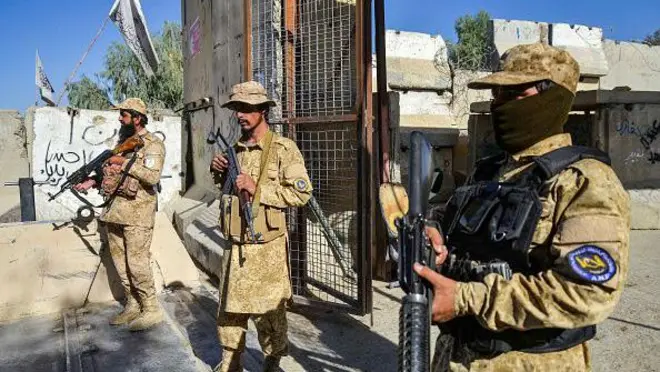Independent Report
Islamabad, 9 November 2025:
Pakistan has accused the Afghan Taliban government of failing to take “concrete and verifiable measures” against terrorist groups operating from Afghan soil, thereby weakening mediated peace negotiations. Islamabad claims that instead of fulfilling their responsibilities, the Taliban are attempting to extend a temporary ceasefire to avoid accountability.
A Foreign Office spokesperson highlighted that Pakistan values sincere mediation efforts by Turkey and Qatar to resolve disputes. However, Islamabad’s primary concern remains the persistent threat of terrorism emanating from Afghan territory, which must be addressed as a priority.
During the third round of Pakistan-Afghanistan talks, Islamabad adopted a constructive approach to establish effective monitoring mechanisms. Reports indicate, however, that the Taliban have shown limited interest in acting against TTP and BLA elements and are instead focused on prolonging the ceasefire. Pakistan alleges that the Taliban are misleadingly portraying militants as refugees—a move described by the spokesperson as “a tactic to present terrorists as migrants,” rather than a humanitarian issue.
The spokesperson affirmed that Pakistan is prepared to accept any of its citizens returned via Torkham or Chaman crossings, provided they are not armed or equipped for cross-border attacks.
Citing historical context, officials recalled that following Pakistan’s 2015 Operation Zarb-e-Azb, TTP militants fled to Afghanistan, where the Taliban allegedly assisted them. These groups are now reportedly sheltered by the current Kabul administration in exchange for loyalty and have established training camps targeting Pakistan.
Despite repeated requests to hand over terrorists, the Taliban have reportedly cited “lack of control” to deny these demands. Pakistan now regards the issue as a matter of intent rather than capacity.
Since the Taliban’s return to power, terrorist attacks in Pakistan have surged. Notwithstanding civilian and military casualties, Islamabad has exercised restraint and sought positive engagement through trade incentives and humanitarian aid. The spokesperson noted that the Taliban’s reluctance to take decisive action demonstrates a lack of reciprocal commitment.
Pakistan’s recent military responses to consecutive attacks reflect its resolve to protect its territory and citizens. The TTP and BLA are labeled as “open enemies of the state,” and any organization providing them shelter, assistance, or funding is not considered a friend of Pakistan. The spokesperson emphasized the unity and determination of Pakistan’s armed forces and citizens in combating terrorism and its supporters.
While Islamabad remains open to dialogue with any Afghan government, it categorically rejects negotiating with terrorist groups. The statement also highlighted internal divisions within the Taliban, with some factions allegedly supported by foreign financiers to provoke conflict, in contrast to elements favoring engagement with Pakistan.
Finally, the spokesperson rejected claims of attempts by Kabul to inflame Pashtun nationalism in Pakistan, affirming that Pashtuns are a vibrant and integral part of Pakistani society. Islamabad advised the Taliban to focus on inclusive governance within Afghanistan rather than stirring domestic ethnic tensions across the border.

